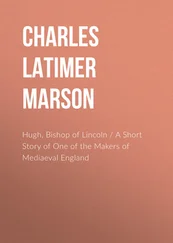Paul Vinogradoff - Villainage in England - Essays in English Mediaeval History
Здесь есть возможность читать онлайн «Paul Vinogradoff - Villainage in England - Essays in English Mediaeval History» — ознакомительный отрывок электронной книги совершенно бесплатно, а после прочтения отрывка купить полную версию. В некоторых случаях можно слушать аудио, скачать через торрент в формате fb2 и присутствует краткое содержание. Жанр: foreign_prose, Юриспруденция, История, foreign_edu, foreign_antique, на английском языке. Описание произведения, (предисловие) а так же отзывы посетителей доступны на портале библиотеки ЛибКат.
- Название:Villainage in England: Essays in English Mediaeval History
- Автор:
- Жанр:
- Год:неизвестен
- ISBN:нет данных
- Рейтинг книги:4 / 5. Голосов: 1
-
Избранное:Добавить в избранное
- Отзывы:
-
Ваша оценка:
- 80
- 1
- 2
- 3
- 4
- 5
Villainage in England: Essays in English Mediaeval History: краткое содержание, описание и аннотация
Предлагаем к чтению аннотацию, описание, краткое содержание или предисловие (зависит от того, что написал сам автор книги «Villainage in England: Essays in English Mediaeval History»). Если вы не нашли необходимую информацию о книге — напишите в комментариях, мы постараемся отыскать её.
Villainage in England: Essays in English Mediaeval History — читать онлайн ознакомительный отрывок
Ниже представлен текст книги, разбитый по страницам. Система сохранения места последней прочитанной страницы, позволяет с удобством читать онлайн бесплатно книгу «Villainage in England: Essays in English Mediaeval History», без необходимости каждый раз заново искать на чём Вы остановились. Поставьте закладку, и сможете в любой момент перейти на страницу, на которой закончили чтение.
Интервал:
Закладка:
39
Maitland, Select Pleas of the Crown (Selden Soc. I), pl. 3: 'Quendam nativum suum quem habuit in vinculis eo quod voluit fugere.' Bract. Notebook, pl. 1041: 'Petrus de Herefordia attachiatus fuit ad respondendum R. fil. Th. quare ipse cepit Ricardum et eum imprisonauit et coegit ad redempcionem 1 marce. Et Petrus venit alias et defendit capcionem et imprisonacionem set dicit quod villanus fuit,' etc.
It must be noted, however, that in such cases it was difficult to draw the line as to the amount of bodily injury allowed by the law, and therefore the King's courts were much more free to interfere. In the trial quoted on p. 45, note 2, the defendants distinguish carefully between the accusation and the civil suit. They plead 'not guilty' as to the former. And so Bishop Stubbs' conjecture as to the 'rusticus verberatus' in Pipe Roll, 31 Henry I, p. 55 (Constit. Hist. i. 487), seems quite appropriate. The case is a very early one, and may testify to the better condition of the peasantry in the first half of the twelfth century.
40
As to the actual treatment experienced by the peasants at the hands of their feudal masters, see a picturesque case in Maitland's Select Pleas of the Crown (Selden Soc.), 203.
41
Stubbs, Constitutional History, ii. 652, 654; Freeman, Norman Conquest, v. 477; Digby, Introduction to the Law of Real Property, 244.
42
Sir Thomas Smith, The Commonwealth of England, ed. 1609, p. 123, shows that the notion of two classes corresponding to the Roman servus and the Roman adscriptus glebae had taken root firmly about the middle of the sixteenth century. 'Villeins in gross, as ye would say immediately bond to the person and his heirs.... (The adscripti) were not bond to the person but to the mannor or place, and did follow him who had the mannors, and in our law are called villains regardants (sic), for because they be as members or belonging to the mannor or place. Neither of the one sort nor of the other have we any number in England. And of the first I never knew any in the Realme in my time. Of the second so fewe there bee, that it is not almost worth the speaking, but our law doth acknowledge them in both these sorts.'
43
Section 182 is not quite consistent with such an exposition, but I do not think there can be any doubt as to the general doctrine.
44
I need not say that the work done by Mr. Horwood, and especially by Mr. Pike, for the Rolls' Series quite fulfil the requirements of students. But in comparison with it the old Year Books in Rastall's, and even more so in Maynard's edition, appear only the more wretchedly misprinted.
45
For instance, Liber Assisarum, ann. 44, pl. 4 (f. 283): 'Quil fuit son villein et il seisi de luy come de son villein come regardant a son maneir de B. en la Counte de Dorset.'
46
Y.B. Hil. 5 Edw. II: 'Iohan de Rose port son [ne] vexes vers Labbe de Seint Bennet de Holme, et il counta qil luy travaille, etc., e luy demande.' Migg. : 'defent tort et force, ou et quant il devera et dit qil fuist le vilein Labbe, per qi il ne deveroit estre resceve.' Devom. : 'il covient qe vous disez plus qe vous estes seisi, ut supra,' etc. Migg. : 'il est nostre vileyn, et nous seisi de luy come de nostre vileyn.' Ber. : 'Coment seisi come,' etc.? Migg. : 'de luy et de ces auncestres come de nos vileynes, en fesant de luy nostre provost en prenant de luy rechate de char et de saunk et redemption pur fille et fitz marier de luy et de ces auncestres et a tailler haut et bas a nostre volente, prest,' etc. (Les reports des cases del Roy Edward le II. London, 1678; f. 157.)
47
I do not think it ever came into any one's mind to look at the Plea Rolls in this matter. Even Hargrave, when preparing his famous argument in Somersett's case, carried his search no further than the Year Books then in print. And in consequence he just missed the true solution. He says (Howell's State Trials, xx. 42, 43),'As to the villeins in gross the cases relative to them are very few; and I am inclined to think that there never was any great number of them in England.... However, after a long search, I do find places in the Year Books where the form of alledging villenage in gross is expressed, not in full terms, but in a general way; and in all the cases I have yet seen, the villenage is alledged in the ancestors of the person against whom it was pleaded.' And he quotes 1 Edw. II, 4; 5 Edw. II, 157 (corr. for 15); 7 Edw. II, 242, and 11 Edw. II, 344. But all these cases are of Edward II's time, and instead of being exceptional give the normal form of pleading as it was used up to the second quarter of the fourteenth century. They looked exceptional to Hargrave only because he restricted his search to the later Year Books, and did not take up the Plea Rolls. By admitting the cases quoted to indicate villainage in gross, he in fact admitted that there were only villains in gross before 1350 or thereabouts, or rather that all villains were alike before this time, and no such thing as the difference between in gross and regardant existed. I give in App. I Конец ознакомительного фрагмента. Текст предоставлен ООО «ЛитРес». Прочитайте эту книгу целиком, купив полную легальную версию на ЛитРес. Безопасно оплатить книгу можно банковской картой Visa, MasterCard, Maestro, со счета мобильного телефона, с платежного терминала, в салоне МТС или Связной, через PayPal, WebMoney, Яндекс.Деньги, QIWI Кошелек, бонусными картами или другим удобным Вам способом.
the report of the interesting case quoted from 1 Edw. II.
48
Y.B. 32/33 Edw. I (Horwood), p. 57: 'Quant un home est seisi de son vilein, issi qil est reseant dans son vilenage.' Fitzherbert, Abr. Vill. 3 (39 Edw. III): '… villeins sunt appendant as maners qe sount auncien demesne.' On the other hand, 'regardant' is used quite independently of villainage. Y.B. 12/13 Edw. III (Pike), p. 133: 'come services regardaunts al manoir de H.'
49
Y.B. Hil. 14 Edw. II, f. 417: 'R. est bailli … del manoir de Clifton … deins quel manoir cesti J. est villein.'
50
See App. I Конец ознакомительного фрагмента. Текст предоставлен ООО «ЛитРес». Прочитайте эту книгу целиком, купив полную легальную версию на ЛитРес. Безопасно оплатить книгу можно банковской картой Visa, MasterCard, Maestro, со счета мобильного телефона, с платежного терминала, в салоне МТС или Связной, через PayPal, WebMoney, Яндекс.Деньги, QIWI Кошелек, бонусными картами или другим удобным Вам способом.
and II. Конец ознакомительного фрагмента. Текст предоставлен ООО «ЛитРес». Прочитайте эту книгу целиком, купив полную легальную версию на ЛитРес. Безопасно оплатить книгу можно банковской картой Visa, MasterCard, Maestro, со счета мобильного телефона, с платежного терминала, в салоне МТС или Связной, через PayPal, WebMoney, Яндекс.Деньги, QIWI Кошелек, бонусными картами или другим удобным Вам способом.
Интервал:
Закладка:
Похожие книги на «Villainage in England: Essays in English Mediaeval History»
Представляем Вашему вниманию похожие книги на «Villainage in England: Essays in English Mediaeval History» списком для выбора. Мы отобрали схожую по названию и смыслу литературу в надежде предоставить читателям больше вариантов отыскать новые, интересные, ещё непрочитанные произведения.
Обсуждение, отзывы о книге «Villainage in England: Essays in English Mediaeval History» и просто собственные мнения читателей. Оставьте ваши комментарии, напишите, что Вы думаете о произведении, его смысле или главных героях. Укажите что конкретно понравилось, а что нет, и почему Вы так считаете.












